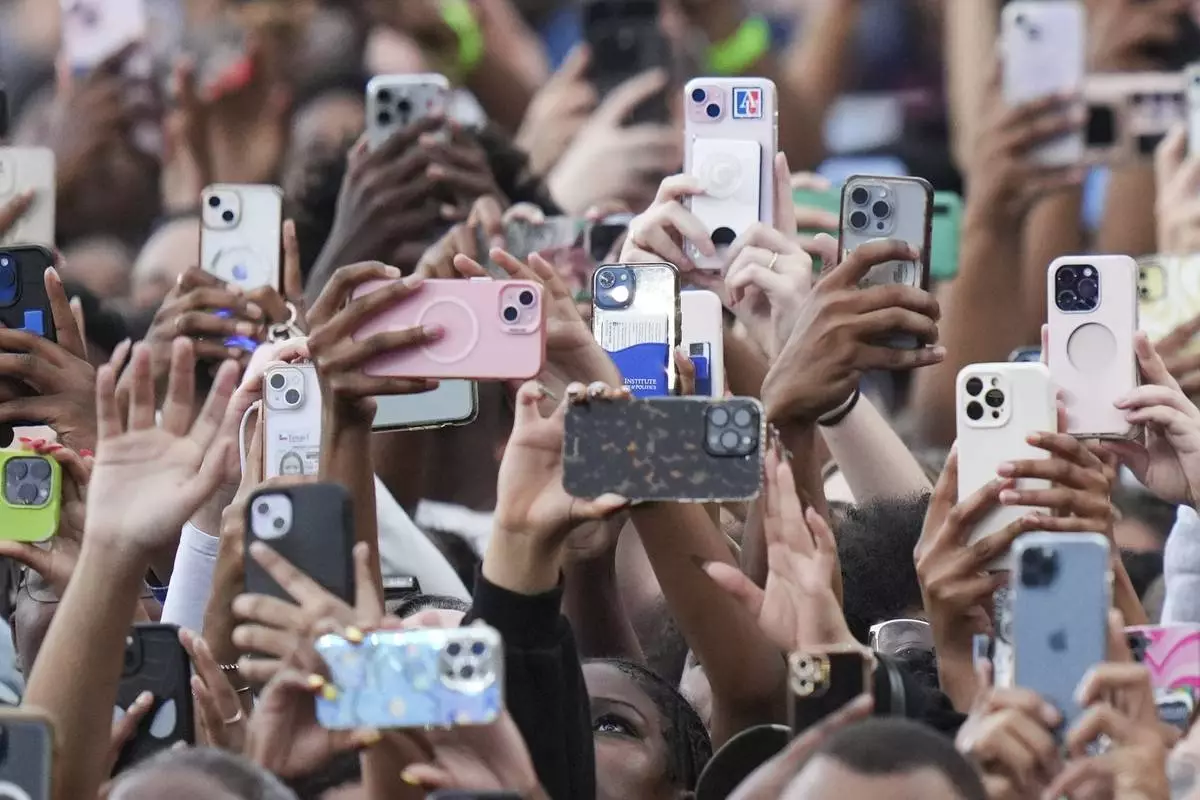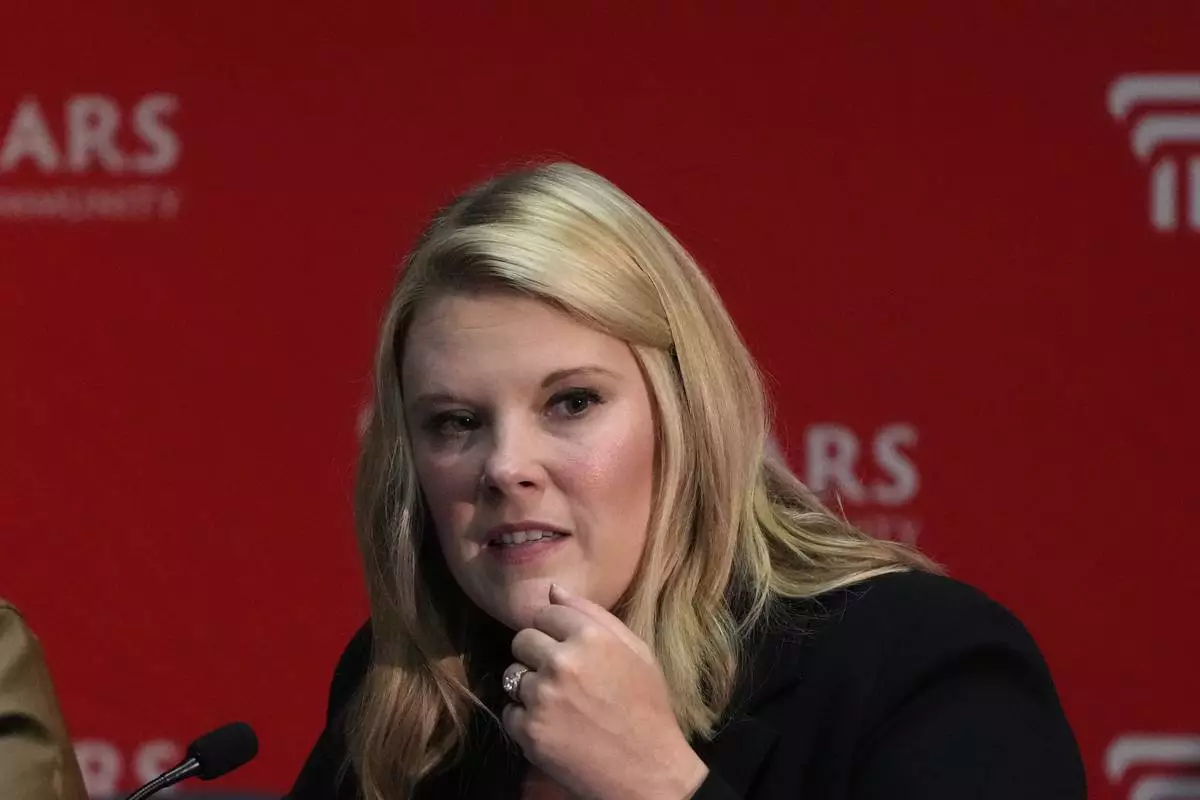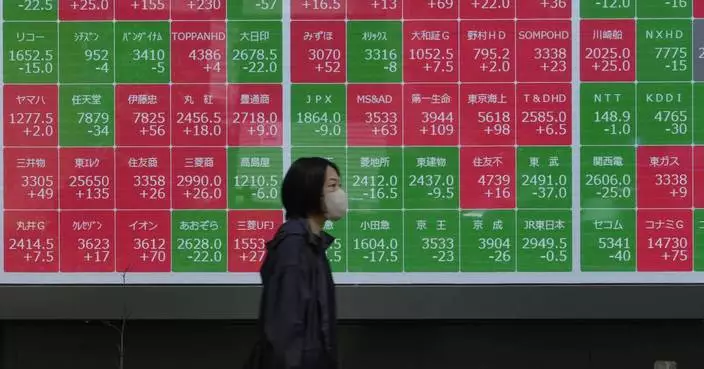About one in five Americans – and a virtually identical share of Republicans and Democrats – regularly get their news from digital influencers who are more likely to be found on the social media platform X, according to a report released Monday by the Pew Research Center.
The findings, drawn from a survey of more than 10,000 U.S. adults and an analysis of social media posts posted this summer by influencers, provide an indication of how Americans consumed the news during the height of the U.S. presidential campaign that President-elect Donald Trump ultimately won.
The study examined accounts run by people who post and talk regularly about current events - including through podcasts and newsletters - and have more than 100,000 followers on Facebook, Instagram, YouTube, X or TikTok. They include people across the political spectrum, such as the progressive podcast host Brian Tyler Cohen and conservative podcaster Ben Shapiro, as well as non-partisan personalities like Chris Cillizza, a former CNN analyst who now runs his own newsletter.
The report found that news influencers posted mostly about politics and the election, followed by social issues like race and abortion and international events, such as the Israel-Hamas war. Most of them – 63% - are men and the majority – 77% - have no affiliation, or background, with a media organization. Pew said about half of the influencers it sampled did not express a clear political orientation. From the ones that did, slightly more of them identified as conservative than as liberal.
During the campaign, both parties and presidential campaigns had courted influencers, including creators who weren't very political, to compete for voters who are increasingly getting most of their news from non-traditional sources.
The Republican and Democratic national conventions had credentialed influencers to cover their events this past summer. Vice President Kamala Harris sat down with Alex Cooper for her “Call Her Daddy” podcast and talked a little Bay Area basketball with the fellows on “All the Smoke.” Meanwhile, Trump hung out with the bros on the “Bussin’ With the Boys,” “Flagrant” and the popular podcaster Joe Rogan as part of a series of appearances targeting young male voters.
“These influencers have really reached new levels of attention and prominence this year amid the presidential election,” Galen Stocking, senior computational social scientist at Pew Research Center, said in a statement. “We thought it was really important to look at who is behind some of the most popular accounts – the ones that aren’t news organizations, but actual people.”
Even though 85% of news influencers have a presence on X, many of them also have homes on other social media platforms, such as Facebook, Instagram, YouTube and TikTok.
Racial minorities, young adults and adults with a lower income were more likely to get their news from news influencers, according to the report. Most of the people surveyed by Pew said news influencers have helped them better understand current events, while roughly a quarter say what they hear has not made much of a difference. A small share — 9% — say influencers have confused them more.
Media analysts have long been concerned about how influencers - most of whom don't have to abide by editorial standards - could fuel misinformation, or even be used by America's adversaries to churn out content that fits their interests. On social media, though, some influencers have positioned themselves as figures presenting neglected points of view.
Pew, which is doing the study as part of an initiative funded by the Knight Foundation, said 70% of the survey respondents believe the news they get from influencers is somewhat different than what they hear elsewhere. Roughly a quarter said it was “extremely or very different.”
The report found TikTok is the only one of the major platforms where influencers who identify as right-leaning do not outnumber those who are more liberal. Pew said news influencers on the short-form video app were more likely than those on other sites to show support for LGBTQ+ rights or identify as part of the LGBTQ+ community. The platform also had the smallest gender gap for news influencers.
AP media writer David Bauder contributed to this report.

Supporters of Vice President Kamala Harris hold up their phones as she delivers a concession speech for the 2024 presidential election, Wednesday, Nov. 6, 2024, on the campus of Howard University in Washington. (AP Photo/Stephanie Scarbrough)










